
The education system in Germany represents classical structure:
level type age
kindergarten 3-5
elementary school Grundschule 6-11
high school Allgemeineschule 11-16
high profile school Gymnasium/Studienkolleg 16-19
the higher school Universitaet, etc. Usually 19-24, sometimes 19-29
Schools of Germany
Advantages:
· the successful termination of high school in Germany gives the chance of receiving free education at any German university
· the low cost of training and accommodation in comparison with German-language schools of Switzerland. At the same time quality of training does not concede at all
The education system of Germany considerably differs from Russian not only on the structure, but also the academic traditions. First of all, Germany – the champion on training duration. Study at school takes up to 13 years, at university the maximum number of years is not limited at all (everything depends on how the student will take examinations).
Schools in Germany are divided by a way of financing on state, private and other (Catholic, municipal).
Private schools in Germany there are about 2 thousand. In them about 5% of the German children study. At private schools of Germany there is not a lot of foreigners as, for example, in Great Britain. To get to good private school, the child foreigner has to pass at first entrance examinations and have interview.
There are day schools and schools boards.
Schools in Germany are subject to the government of that Earth in the territory of which they are. Therefore programs, rules, terms of the beginning of study, duration of vacation and duration of training at high schools in different lands are various.
Summer vacation in Germany lasts 6 weeks. Within a year there is Christmas, winter, Easter and short holiday for the Trinity.
Training duration at school according to the German education system – 13 years.
Elementary school in Germany (6-11 years) – Training in it lasts 4 years (in Berlin and Brandenburg – six). Marks are put down from the 3rd class, and on the turned scale: unit – is “excellent”, and the five – “неуд”. If parents and the child are not able to solve at once to what school further to go, they can choose a transitional step (Orientirungsstuffe, 2 years).
High school in Germany (11-16 years) – High schools are divided into several types:
· a gymnasium (Gymnasium) – the most prestigious school
· real (Realschule) – gives professional education in services industries, trade and public service
· main (Hauptschule) – is intended, generally for the pupils who are not assuming continuation of the education at university
· the general (Gesamtschule, mix of the first three types) – allows to get at the same time arts and technical education
· professional (Professionalschule) – is focused mainly on the pupils aspiring an ovladetprofessiya and not planning to get higher education
Gymnasium in Germany (16-19 years):
Gives profound education in three main directions:
· humanitarian (languages, literature, arts)
· public (social sciences)
· technical (natural sciences, mathematician, technician).
Progress of the pupil is estimated each half a year and is noted in the certificate on progress (Zeugnis). The last year of a gymnasium is called Abitur (preparation in higher education institution). Final exam at the German school is taken in four main objects at the age of 19 years for obtaining the certificate on secondary education (the certificate of Abitur). The average ball of Abitur is higher, the it is more than chances to enter the desirable university.
College of prehigh school preparation Studienkolleg (17-19 years):
As with the Russian certificate it is difficult to enter the German university, it is better to spend those 2 years which make a difference between the Russian and German secondary education in Studienkolleg college. Study in one of such institutions allows to pass examinations for the diploma of Abitur.
In college you can choose one of 5 directions:
· The T-course comes to an end with examination on mathematics and physics (or chemistry – at choice)
· Ended the M-course hand over biology or chemistry, physics or mathematics.
· The W-course is examinations in mathematics and economy.
· A S-course – a foreign language, history or social sciences, either geography, or the German literature.
· A G-course – history, the German literature, English or social sciences, or geography.
After all courses, except S, also passing an examination on German is required.
The program is impossible in the earth Northern Rhine-Westphalia where in the summer of 2010 all colleges were closed.
Universities in Germany
Advantages of receiving the higher education in Germany:
· Free training or low cost of training (120-600 euros in a semester) in state universities of Germany
· Usually there are no entrance examinations
· Training in higher education institutions of Germany is possible in German or English
· High level of knowledge of a foreign language at the initial stage is not required
· A training language course at the German university during which foreign students have an opportunity to use all privileges of students and all resources of higher education institution
· An opportunity to independently make the plan of occupations in higher education institution of Germany
· Higher education institutions of Germany combine ancient university traditions and modern scientific achievements
· A possibility of study during one or several semester in other country (higher education institutions have partner agreements with universities of the USA, France, England)
· The paid training in the German firms
· The right for work during study in Germany
· An opportunity after the termination of higher education institution of Germany of training to work in the European Union countries
· A possibility of receiving the right for the constant place a residence in Germany for experts
· A draft deferment for the period of training in Germany
Education system in Germany
level Type age
1. kindergarten 3-5
2. elementary school Grundschule 6-11
3. high school Allgemeineschule 11-16
4. high profile school Gymnasium/Studienkolleg 16-19
5. the higher school Universitaet/Technische Universitaet, etc. Usually 19-24, sometimes 19-29
There are state and private universities in Germany though the number of the last is small.
Training term in state universities of Germany – from 4 to 10 years. It depends on the chosen specialty and higher education institution. Training term in private higher education institutions of Germany – from 3 to 5 years.
Academic year lasts since September – October till August – September (state universities). Private higher education institutions in Germany offer more start dates of occupations in year and a summer semester too.
The schedule of educational process at universities of Germany: each semester consists of the lecture periods (14-20 weeks) and not lecture during which the student is engaged in independent scientific work.
The system of the higher education of Germany unites about 440 educational institutions which majority are state (about 360). The most known and prestigious higher education institution of Germany is the Heidelberg university (it is founded in 1386 on a sample of the Parisian Sorbonne). The second place in a rating of the German universities is taken by Ludwig-Maksimilliana’s university located in Munich (it is based in the 15th century). In Hanover and Lubeck both medical institutes of Germany are located. In Munich and Hamburg there are two military universities of the Bundeswehr. Die Bucerius Law School is considered the best legal higher education institution of Germany.
The majority of higher education institutions of Germany – state. Free education – the main advantage of study in this country. Private paid universities in Germany are too, but it is a little of them.
Free and at the same time quality higher education of Germany attracts huge number of local entrants and students from other countries. In 2013 at universities of Germany more than 282 200 foreign students according to the statistics of DAAD were trained (from them 35% – from the countries of Asia, 27% from Eastern Europe, 19% from Western Europe, 10% from the countries of Africa, 8% from the countries of Northern and Southern America). It led to introduction of restrictions for revenues to some faculties (for example, medicine, the rights, pedagogics). It is more than chances to arrive at those at whom the average ball of Abitur is higher and the term of expectation of the place is more long (receipt goes according to the list in which you will write down at filing of application).
The main principle of the higher education in Germany is “the academic freedom” – the system allowing any student to define independently the list of the studied disciplines which will be included into its diploma, and also to combine educational process with scientific researches. Each semester in higher education institution in Germany consists from lecture (14-20 weeks) and not lecture periods during which the student is engaged in independent scientific work. The main difference of universities of Germany from the majority of our higher education institutions is an opportunity more or less free (depending on a subject) the choice of the curriculum. Itself can manage to make so the schedule that you will have a lot of time for side jobs, sports activities or private life.
All German higher education institutions can be divided into several types:
· Universities (Universitaten). Now the modern German university is a scientific and training center with very wide range of faculties and specialties.
· Technical universities (Technische Universitaten). These universities generally offer training at technical, natural-science, economic specialties.
· Institutes (Fachhochschulen). Institutes arose on the basis of engineering schools, and train experts of more than 100 directions: programmers, engineers, economists, etc. This type of higher education institutions gives more applied education and for shorter term, than classical universities. Because of a practical orientation of training much attention is paid to training in the specialty.
· Pedagogical (Padagogische Hochschulen)
· Theological (Theological Colleges)
· Musical (Musik-Hochschule). These higher education institutions of Germany train future musicians, workers of the media industry and other representatives of creative professions.
· Administrative (Verwaltungs-fachhochschulen)
· Special higher educational institutions of art (Kunsthochschulen). These higher education institutions of Germany train future artists, designers, architects and other representatives of creative professions.
A quarter of the German entrants choose Fachhochschulen from all listed higher educational institutions. The same institutes of applied sciences are chosen by 38% of foreign students in Germany. Training term in them is shorter (usually 3-4 years), training rather practical, than theoretical, year training in firms of this profile is obligatory. In such higher education institutions in Germany it is possible to gain excellent knowledge in the field of engineering, economy and management, agriculture, computer specialties.
Diplomas and degrees
The university course is divided into the following stages:
Course duration degree
Basic (Grundstudium) 3-4 semester licentiate’s degree (Vordiplom-Preddipl)
Main (Hauptstudium) 4-6 semester degree of the master (Magister Artium) students of technical specialties instead of this degree gain the diploma of the expert (Diplom)
Additional degree of the doctor (Doctorate)
Study in any higher education institution in Germany is divided into a basic course (Grundstudium) and the professional course (Hauptstudium) following it, each lasting at least 4 semester. The first comes to the end with delivery of intermediate examinations (Zwischenpruefung) or predegree examination (Diplom-Vorpruefung). Upon termination of study in higher education institution of Germany depending on specialty and type of higher education institution either degree examination (Diplom), or examination is taken for degree of the master (MA), or state exam (Staatexamen).
The exception is made by the international departments of universities of Germany and the highest special educational institutions, training at which takes place according to the accelerated program. Receiving a rank of the bachelor (Bachelor) is possible already through 6 semester here. But at desire training in Germany can be prolonged to be entitled after four following semester Master (Magister) or to defend the thesis.
The magistracy in Germany is designed for the people who received degree of the bachelor or expert and persons interested to continue the education in Germany, to receive the second the highest or the master’s degree.
How to enter to state university of Germany?
· Upon termination of school you can come to a gymnasium or штудиенколлег where you will study 1-2 years before obtaining the German diploma of Abitur, and upon termination of the program to enter the university in Germany (it is detailed about programs of cm. Secondary education in Germany). The program of a gymnasium is open in all lands, programs штудиенколлег almost in all, except Northern Rhine-Westphalia where in the summer of 2010 all colleges were closed. Preparation in Studienkolleg lasts 1 year and consists of a course of German and 5-7 profile objects depending on on what specialty the student is going to give to university upon termination of college.
· Upon termination of school you can arrive on the year preparatory course Freshman Year in the city of Aachen and after its termination to enter on the program of a bachelor degree to any university of Northern Rhine of Westphalia.
· After 1 course of higher education institution of the Russian Federation (or the 2nd in absentia) it is possible to arrive on preparatory office in higher education institution in Germany upon termination of which you will be enrolled in Germany. For revenues to courses, it is necessary to pass successfully the test on German (Einstufungstest) and to show a basic level of knowledge (this test much easier, than examination of DSH).
· After 2 courses of higher education institution of the Russian Federation it is possible to arrive on the 1st course of higher education institution of Germany without examinations. Considerably it is impossible to change specialty. It is necessary for receipt that the specialty chosen in Germany was similar to that direction which you study now.
· For training at German you have to pass the language DSH-Pruefung test (Deutsche Sprachpruefung fuer den Hochschulzugang). Except the DSH test many higher education institutions of Germany accept also the TestDaF test which can be handed over in the CIS (unlike the DSH, DAF test it is possible to hand over unlimited number of times), and also DSD II, GDS. Depending on test results you will be enlisted or to you will suggest to increase German level on a language course in Germany.
· For training at English you have to report test results to TOEFL of iBT who has to be not less than 79 points, or IELTS with result usually not less than 6.0. points.
· Selection in higher education institutions of Germany is carried out on a competition of the estimates received in the homeland.
· Many state universities of Germany enter an evaluating test for foreign entrants of TestAS now.
· At revenues to a number of faculties (on medical, for example, music, the fine arts) it is necessary to pass entrance examinations for creative specialties.
· If you already study in higher education institution of the CIS or have the finished higher education, then after receipt can перезачесть the studied objects and to reduce the training in Germany. University graduates can reduce training time by several years and graduate from higher education institution in Germany approximately for 1-3 years. Certainly, reduction of time of training is possible only at entering a higher education institution in Germany on the same specialty (or close to it).
· A number of the German funds and societies (Alexander von Humboldt’s fund, Fund of Konrad Adenauer, Fund of Friedrich Ebert, Max Planck’s Society, the German research society) provides to foreign students and scientists special grants for carrying out scientific researches and professional development.
How to enter to the private university of Germany?
Receipt terms
As it is possible to begin study in higher education institution in Germany with any semester (winter – begins in September-October or summer – in March-April), there are two terms of documents acceptance.
It is possible to go two times a year to state universities of Germany:
· Documents on a summer semester are filed till June 15. The beginning of study in October.
· Documents on a winter semester are filed till December 15. The beginning of study in April.
Note: Some higher education institutions of Germany accept documents in other terms.
NB: We recommend to begin preparation of documents for entering a higher education institution in Germany not less than in a year. So more time will remain on selection of higher education institution of Germany and it is not necessary to worry that you will not manage to receive the invitation from higher education institution and to issue the visa.
The list of documents for entering a higher education institution in Germany
For graduates of schools:
· The certificate about secondary education
· An extract from the certificate about secondary education
· References (certificates) on studying of German (school, higher education institution, courses) with the indication of number of the listened hours (at least 600 hours are necessary)
· 2-9 color photos size (4 x 5 cm).
For students of higher education institutions:
· The certified academic reference (an extract from the academic record) with the indication of all of the objects studied higher education institution with estimates and a number of hours.
· The certified copy of the order on transfer in higher education institution (with estimates on entrance examinations)
· The certificate about secondary education
· An extract from the certificate about secondary education
· The certified copy of the certificate on the state accreditation of higher education institution (for students of non-state higher education institutions)
· References (certificates) on studying of German (school, higher education institution, courses) with the indication of number of the listened hours (at least 600 hours are necessary)
· 2-9 color photos (4 x 5 cm).
For the persons having the higher education:
· The diploma about the higher education
· The annex to the diploma with estimates and hours
· The certificate about secondary education
· An extract from the certificate about secondary education
· References (certificates) on studying of German (school, higher education institution, courses) with the indication of number of the listened hours (at least 600 hours are necessary)
· 2-9 color photos size (4 x 5 cm).
· It is recommended to contact the secretariat of faculty of the chosen university for examination in advance whether your qualification sufficient for revenues to the postdegree program will be recognized.
Residence in Germany
As the student of higher education institution of Germany, you can live during training in Germany in the student’s hostel. The application is usually submitted through student council of higher education institution (Studentenwerke). Accommodation in the apartment is also possible. Though the minimum living wage makes 659 euros a month, real expenses strongly depend on the region of residence: the most expensive option – the large city in the West, the cheapest – the small town in the east.
Hostel
The room in the hostel is the most inexpensive option of accommodation. In the hostel it is also possible to rent apartments with separate small kitchen and a bathroom, but will be of it more expensive. The place in the hostel is not provided automatically. For this purpose it is necessary to submit the application to Society of assistance to pupils of higher education institutions, studentenwerke.de. On this website it is possible to fill in the application and to get in line. It is necessary to make it as soon as possible, right after obtaining the invitation of university as the competition for housing in the hostel quite high.
Certain apartment
Rent of the certain apartment will cost 400-1000 euros a month. They give up both with furniture, and without furniture. There are two types of a rent – Kaltmiete (“a cold payment” or a basic rent) which does not include utilities, and Warmmiete (“a warm payment”), already taking into account utilities. Therefore if you found the inexpensive offer, but “Kaltmiete” is specified there, it is better to specify in advance how many they will cost municipal and other services, such as a home telephone number, the Internet or an insurance which together can make up to 50% of cost of a basic rent. It is also necessary to consider that most of owners of apartments demand pledge at a rate of 1-2 monthly rents and the document confirming solvency of the tenant. Announcements of renting apartments are published on the websites www.immonet.de, www.immobilienscout24.de, www.immowelt.de and www.wg-gesucht.de.
Work during study in Germany
Thanks to not intense schedule of occupations at universities of Germany (5 months of vacation in a year) many students earn additionally. It is possible to work only in non-study time. Students of higher education institution of Germany have the right to work part-time (20 hours a week, 120 full days in a year). Students of a shtudiyenkolleg have the right to work 10 hours a week. Without work permit it is possible to work 180 days in a year. On all kinds of activity over it it is necessary to request special permission (Arbeitserlaubnis). The work permit is issued only if work goes not to the detriment of study in Germany. Usually earnings of students make 5-10 euros an hour. Your earnings in many respects depend on the fact that you are able to do, and how well know German.
Expenses on life in Germany
Approximate expenses on residence in Germany for 1 month:
· accommodation: from 400 to 800 euros
· food: from 200 to 400 euros
· insurance: 40-70 euros
· driving through the city: about 50 euros
· training material: 10 euros
In lands the payment for the hostel is lower than east Germany, than in the West German lands, and often does not exceed €200.
“You want to save – go to a shower with the friend” – the student’s joke says. A joke – lie and in it a hint… Many students save on accommodation by the similar principle. They rent big apartment or the house together (in German Wohngemeinschaft or WG). Divide kitchen, a bathroom, and at the same time utility costs and costs of the Internet and phone. Leaves anyway cheaper, than to rent apartment most.
On the second place in the list of student’s expenses there are expenses on food. Competently it is possible to spend money for food, having dinner in German student’s table (Mensa). One more bonus of the dining room – social contacts. Exactly here it is possible to communicate in an easy situation to classmates and to start new acquaintances. It is possible to save, buying I go in inexpensive supermarkets, for example, to Aldi, Lidl, Penny or Plus.
Books in Germany cost much. The textbook on psychology can pull also for €60. For economy it is possible to take necessary literature in library. If the book is necessary for a long time, it can be otkserokopirovat. Quite often textbooks expose libraries, in electronic form on the website, or on the special Internet pages created for the aid to students (Semester-Apparat).
Since 2006, after introduction of a tuition fee in Germany, students of six federal lands of Germany had one more item of expenditure – the obligatory contribution making about €500 in a semester.
To an “educational” contribution also semestrial – for the ticket, service in library, paperwork and other is added on. It makes from €100 to 200 in various higher education institutions.
Costs of clothes, cosmetics and entertainments are individual. In drains (Outlet) it is possible to acquire clothes of the known brands with discounts at all seasons of the year. It is the most favorable to buy cosmetics and goods of household chemicals in special distribution networks (Drogerie).
Telecommunication in Germany also expensive. Mobile operators, as a rule, offer students of higher education institutions of Germany special tariffs. However it is more favorable to that who calls a little to buy SIM cards without contract of the regular user (Prepaid-card). It is cheaper to carry on talk on a mezhgoroda with the help of special codes which need to be gathered before number. It is possible to find them in the Internet or in the Russian-speaking press of Germany. Among the foreign students passing study in Germany also the free Internet program for Skype calls uses special popularity.
Conditions of receipt of a visa
To receive the visa to training in higher education institution in Germany, students have to show the letter on transfer in the German university (usually it is Zulassungsbescheid for training at German) or confirmation of the fact that all documents, necessary for receipt, were received by university of Germany. In addition to it students have to produce the evidence of the sufficient financial resources which are available for them (not less than 670 euros for a month). Including at submission of documents on the visa to training in higher education institution in Germany you have to show confirmation that you on the account in Germany have 7900 euros. It is your money, them no who should be paid, but you have to have them.
The complete list of the documents necessary for receipt of a visa for training in higher education institution in Germany, you can receive at our office (see contacts).
Prospects after the termination of university in Germany
Having the international diploma, graduates of universities of Germany are in great demand in labor market. The foreign students who graduated from higher education institution in Germany also can count on a workplace in the German firms and their representations in Europe. University graduates of Germany often go under the contract to Canada, the USA, Spain and England.
After receiving the higher education in Germany all students have an opportunity to remain to work in Germany. Germany is in great need in foreign experts. Due to the need for labor, for Germany the new emigratory law facilitating to university graduates of Germany is adopted to remain to live and work. To find work after the termination of higher education institution in Germany, it is required to have good marks in the diploma and good recommendations from the employer at whom you did practical training. The easiest to find work in the field of informatics, technical specialties, ecology, the food industry, engineering, mechanical engineering, construction, electrical equipment. University graduates of Germany have to find work during 1 year upon termination of higher education institution.
In four years after the end of study in Germany the salary of graduates makes 30-46 thousand euros a year. Besides, thanks to the international diploma (and the German education “is quoted” in the European and other countries), they become enviable applicants for prestigious positions in the German companies or their representations in Europe and the CIS. Legal accommodation in the territory of the country within 8 years allows to submit documents for obtaining nationality. Article 10 of the German law “About Nationality” defines that obtaining nationality requires 8 years “lawfully” and to live “usually” in Germany. Here that is also covered “dirty trick” in the word “usually” (gewöhnlichen Aufenthalt). Stay in the status of the student in Germany according to the educational visa or student’s residence permit admits “lawful”, and here as “usual” it is recognized not in all federal lands as after the end of training in higher education institution in Germany the student needs to leave the country. According to the circular of the Ministry of Internal Affairs Northern – Westphalia, the years spent in Germany during training can be set off for obtaining the German nationality, and here in Bavaria or Saxony – no.

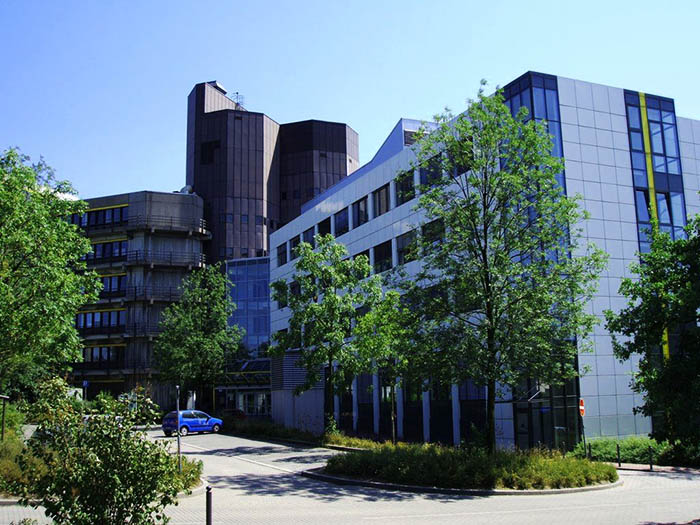
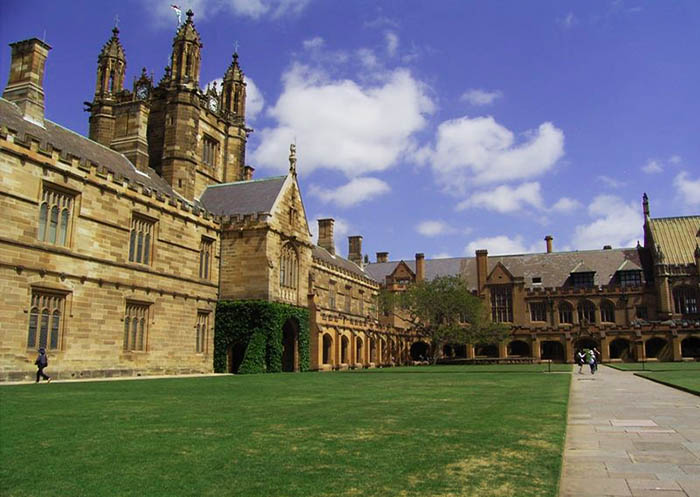
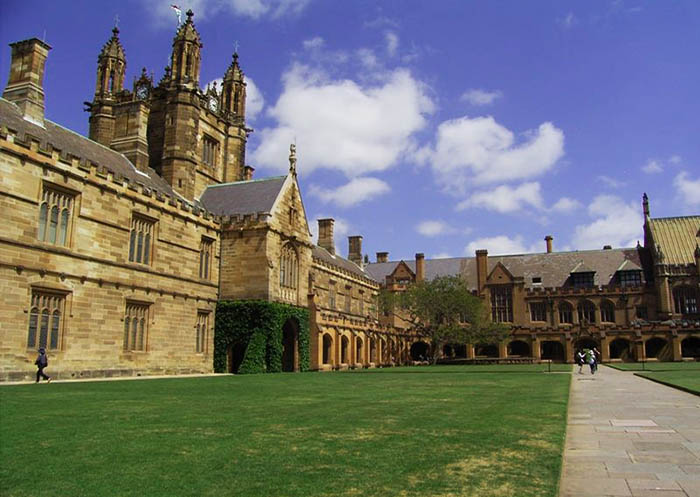
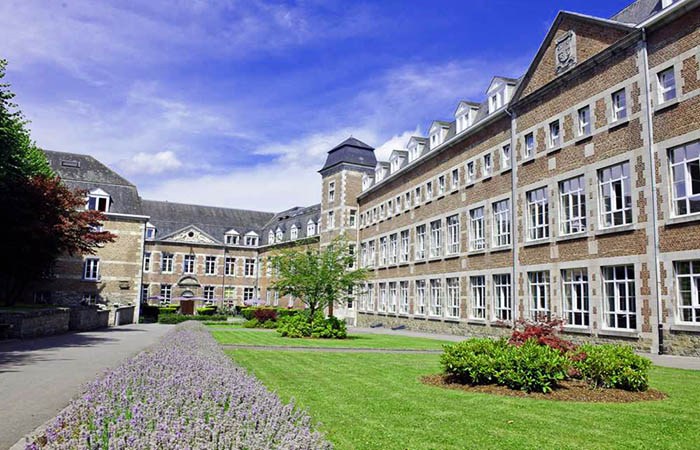
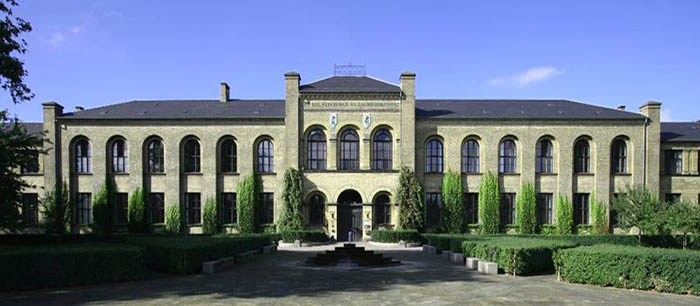
Leave a Reply